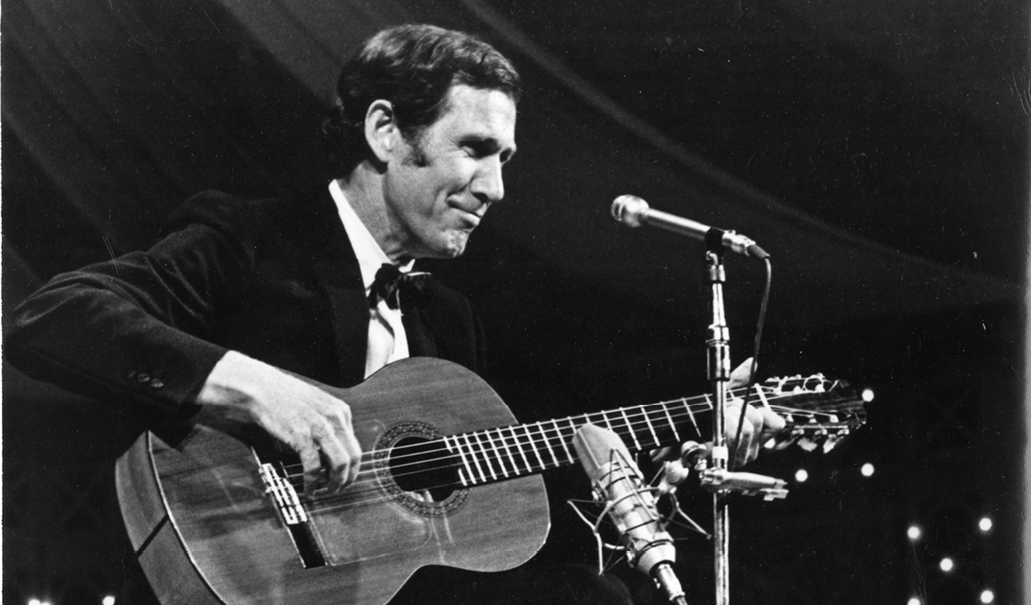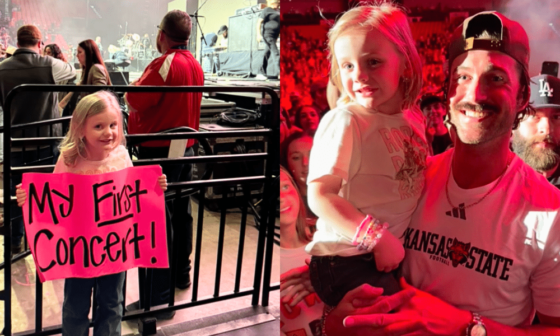It’s been 24 years since the world lost Chet Atkins, but on July 2, 2025, the stage didn’t echo with absence—it rang with reverence. There were no fireworks, no spectacle. Just four legends—Vince Gill, Keith Urban, Dolly Parton, and Steve Wariner—gathered to honor the man who helped shape them all. It wasn’t a tribute concert. It was a thank-you whispered through strings.
Every chord was played with quiet gratitude. Every lyric carried weight. The performance, gentle and soul-stirring, reminded everyone why Chet’s fingerprints are still on everything country music touches.
The Guitar Man Who Changed Everything
Chet Atkins wasn’t just a brilliant guitarist—though he was that and more. He was the architect of the Nashville Sound, the producer who dared to soften country music’s rough edges with strings and polish, the executive who signed Charley Pride and helped launch a revolution from behind the glass at RCA Studio B. Elvis recorded there. So did Dolly. The Everly Brothers. Roy Orbison. Chet was never just playing along—he was leading quietly from within.
Born June 20, 1924, in Luttrell, Tennessee, Atkins came from music. His mother played piano. His father taught music. He learned to play guitar so he could join in with his siblings and stepfather. Later, severe asthma sent him to Georgia, where he discovered Merle Travis on WLW radio. That thumb-picking changed everything. By the time he returned to Tennessee, Chet had shaped a sound of his own—and the world would never be the same.
A Career Built in Quiet Confidence
From Knoxville’s WNOX to Cincinnati’s WLW and eventually to Nashville’s Grand Ole Opry, Atkins hopscotched across stations and states, leaving brilliance in his wake. He signed with RCA in 1947, became one of the Opry’s favorite performers, and eventually climbed the ranks to RCA’s vice president, overseeing Nashville operations.
His playing—clean, intricate, and deeply emotional—made hits of pop songs like “Mr. Sandman,” and made legends out of countless artists. But he didn’t just make records. He made careers.
A Legacy of Generosity, Not Just Greatness
Ask Steve Wariner what mattered most about Chet Atkins, and he won’t say “hits.” He’ll say heart. Atkins signed him to his first record deal—and later, when they were nominated for the same Grammy, Chet won. A week later, he handed the Grammy to Wariner and said he thought it belonged to him. It wasn’t a stunt. It was Chet being Chet.
Vince Gill remembers visiting Chet’s home after he passed in 2001. Chet’s wife let him play his guitars. Vince gravitated to a Martin—and days later, that guitar showed up at his house. “Chet would’ve wanted you to have it,” she said.
And then there’s Dolly.
Chet once told her to tone it down—less hair, less makeup—if she wanted to be taken seriously. Years later, he laughed and told her he was glad she didn’t take his “good advice.”
“He meant well,” Dolly said, chuckling. “But it still worked out for me.”
A Night of Music. A Lifetime of Meaning.
As Vince, Keith, Dolly, and Steve took the stage in quiet tribute, it wasn’t about honoring a career. It was about honoring a character. They weren’t just playing Chet’s music—they were playing because of him.
Keith Urban once said Chet brought pop into country when everyone thought it was heresy. He added string sections. He expanded boundaries. He made country music breathe differently—and he did it without needing to shout.
The tribute wasn’t flashy. It wasn’t loud. It didn’t need to be.
It was honest.
Like Chet.
And for a moment, as guitars wept softly and voices met in harmony, it felt like he was still here—smiling in the wings, quietly proud.
Because legends never leave when the music keeps playing.





